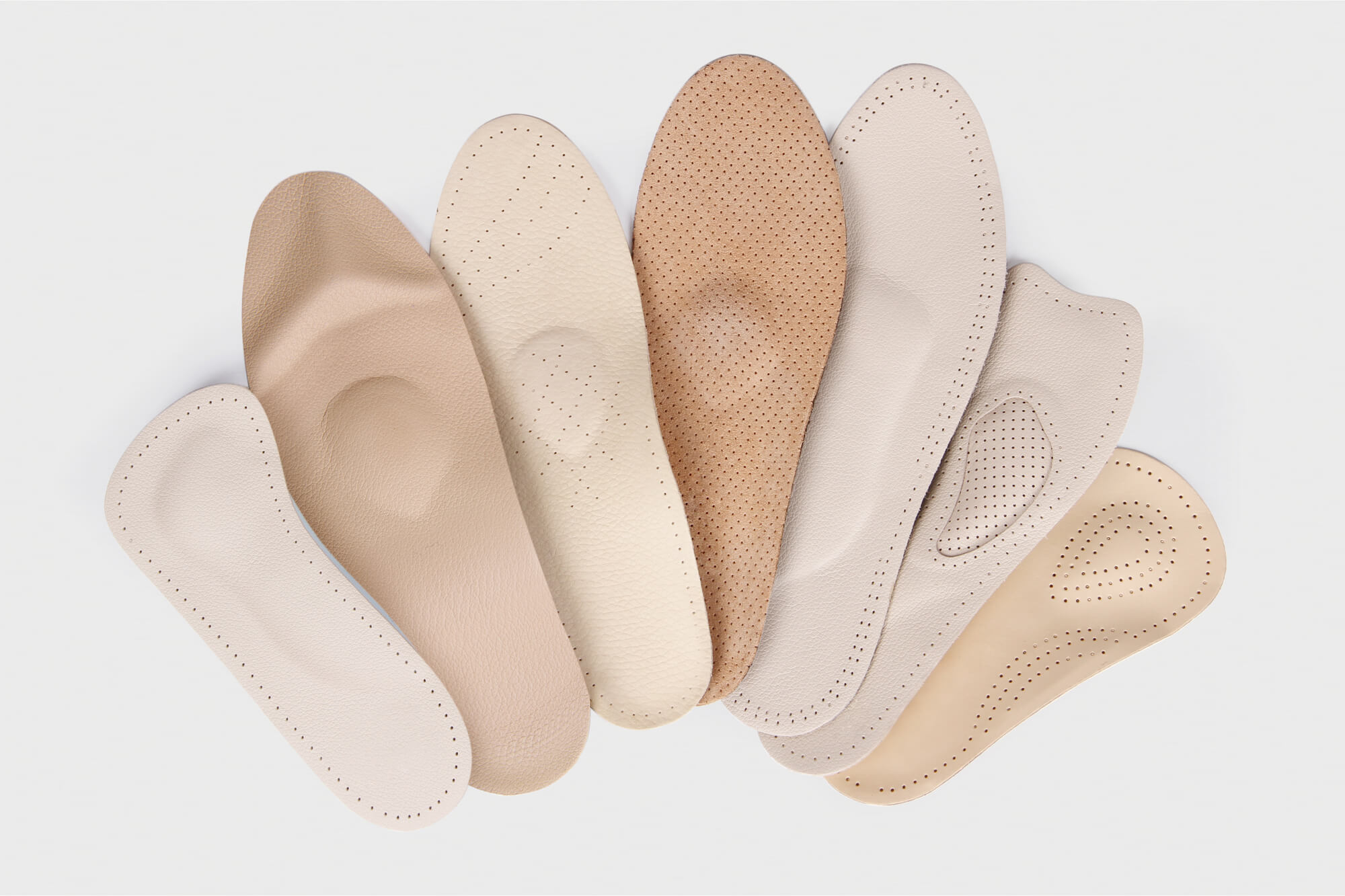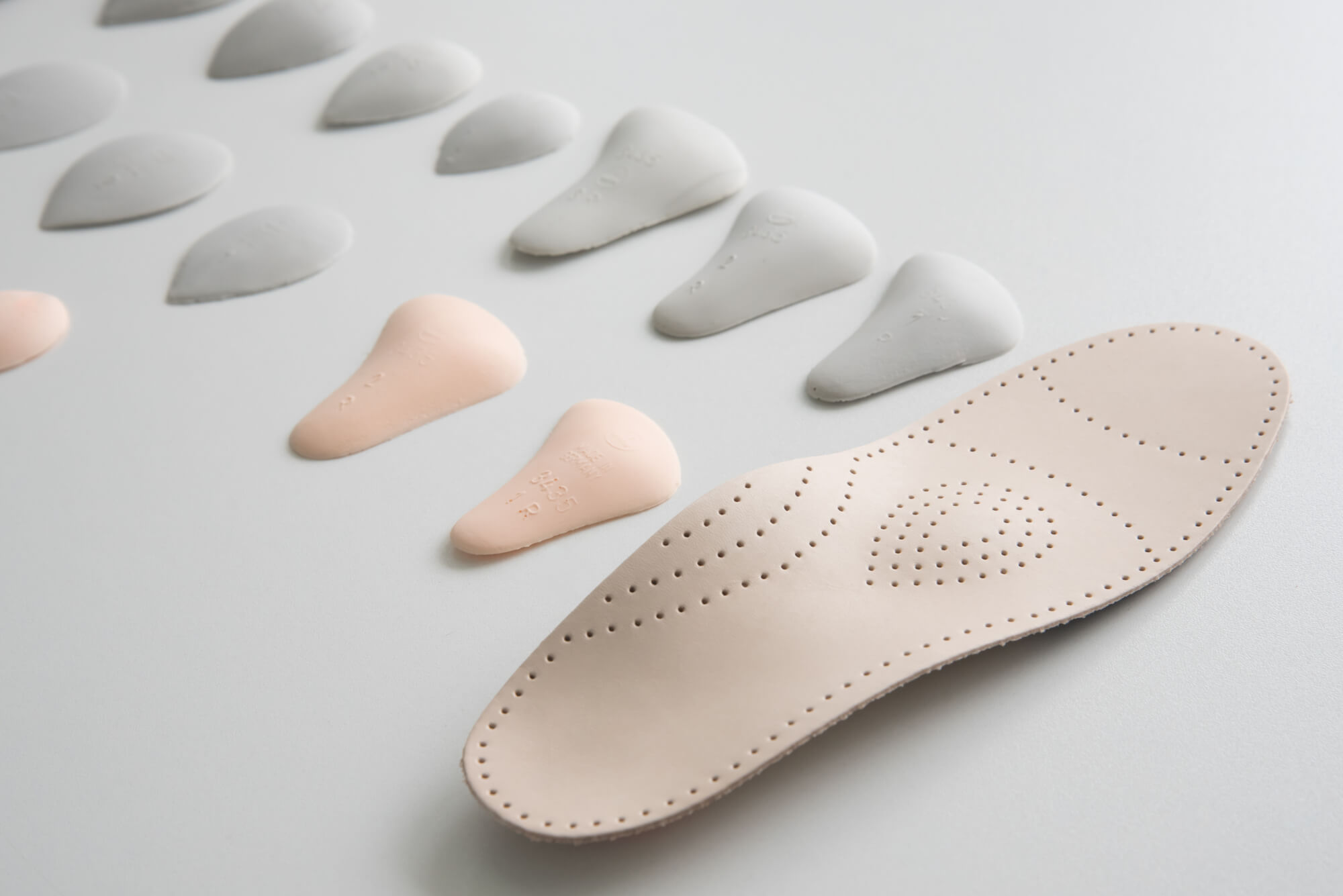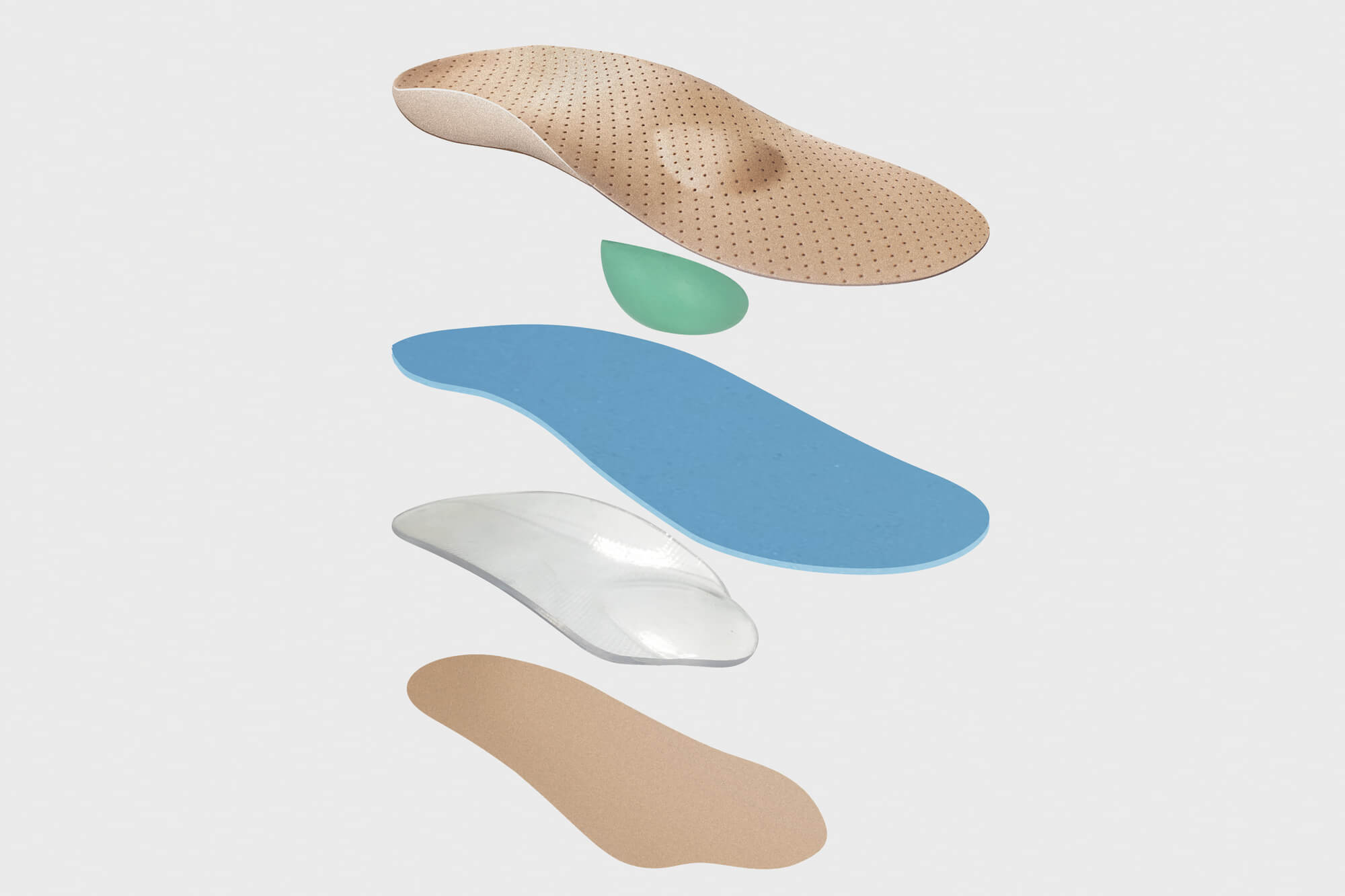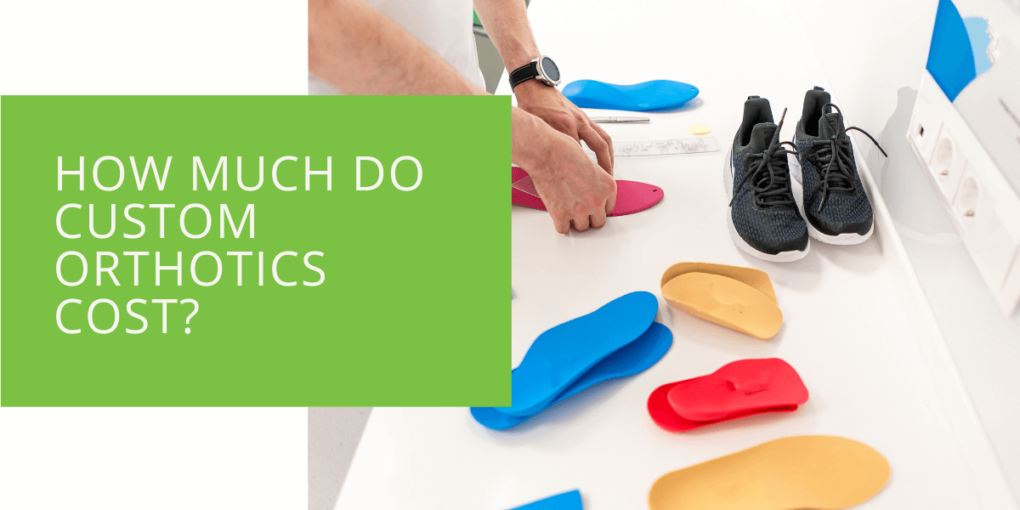How Much Do Custom Orthotics Cost and Are They Worth It?
Orthotics are shoe inserts that can relieve pain, correct structural abnormalities, and improve foot and ankle function. Custom orthotics are designed to fit the individual wearer's specific foot and ankle condition. However, the cost of custom orthotics can be a barrier for many patients. In this article, we will discuss how much custom orthotics cost, factors that can affect the cost of orthotics, and whether custom orthotics are worth the investment.
What Are Custom Orthotics?
Definition of Custom Orthotics
Custom orthotics are shoe inserts designed to fit the individual wearer's specific foot and ankle condition. They are prescribed and created by a podiatrist or sports medicine professional to provide personalized support and cushioning for the foot and ankle.
Types of Custom Orthotics
There are two main types of custom orthotics: functional and accommodative. Functional orthotics are designed to control the motion of the foot and ankle, while accommodative orthotics are designed to provide cushioning and support for the foot.
Functional orthotics are typically made of more rigid materials, such as plastic or graphite, and are designed to control motion and correct structural abnormalities in the foot and ankle. They commonly treat foot conditions such as overpronation, flat feet, and plantar fasciitis.
Accommodative orthotics are typically made of softer materials, such as foam or rubber, and are designed to provide cushioning and support for the foot. They are commonly used to treat foot conditions such as arthritis, diabetic foot ulcers, and other conditions requiring more cushioning and foot support.
How Are Custom Orthotics Made?
Custom orthotics are made by taking a mold of the individual's foot and ankle and creating a customized insole to fit the specific foot condition. The mold is typically created using a foam box or digital scanner, which captures the shape and contours of the foot.
The podiatrist or sports medicine professional will then use the mold to create a customized insole that fits the individual's foot and ankle. Based on the individual's foot condition, the insole is designed to provide support and cushioning where it is most needed.
Custom orthotics are typically made of higher-quality materials than over-the-counter insoles and are designed to last longer. They can be refurbished or adjusted over time to ensure they continue providing the necessary support and cushioning for the individual's foot condition.

How Much Do Custom Orthotics Cost?
Average Cost of Custom Orthotics
Custom orthotics can range in price from $200 to $800 per pair, depending on the complexity of the foot condition and the materials used to create the orthotics. The average cost of a pair of custom orthotics is around $500.
Factors That Affect the Cost of Custom Orthotics
Several factors can affect the cost of custom orthotics. The complexity of the foot condition is one of the most significant factors. The more complex the condition, the more time and expertise are required to create a customized insole that provides the necessary support and cushioning.
The materials used to create the orthotics can also affect the cost. Custom orthotics made of higher-quality materials, such as carbon fiber or high-density foam, may be more expensive than orthotics made of less expensive materials.
The location of the provider can also affect the cost of custom orthotics. Providers in urban areas or areas with higher living costs may charge more for custom orthotics than providers in rural areas or areas with lower living costs.
Cost of Custom Orthotics vs. Prefabricated Orthotics
While custom orthotics are more expensive than over-the-counter or prefabricated orthotics, they may be more effective for treating specific foot conditions. Over-the-counter insoles may provide temporary relief, but they are not designed to fit the specific foot condition of the wearer.
Custom orthotics are designed to provide personalized support and cushioning for the individual's foot and ankle condition, which can improve pain relief and function. In contrast, prefabricated orthotics are designed to fit various foot sizes and shapes and may not provide the same level of support and cushioning as custom orthotics.
It's important to speak with a podiatrist or sports medicine professional to determine if custom orthotics are necessary for your specific foot condition and to discuss the cost and insurance coverage options. They can help you weigh the benefits and drawbacks of custom orthotics and decide whether they are worth the investment.

Are Custom Orthotics Worth It?
Benefits of Custom Orthotics
Custom orthotics provide several benefits for individuals with foot and ankle conditions. They are designed to fit the specific foot condition of the wearer, providing personalized support and cushioning that can improve pain relief and function. They can also help correct structural abnormalities in the foot and ankle, such as overpronation or flat feet, leading to chronic pain or injuries.
Custom orthotics are made of higher-quality materials than over-the-counter insoles and are designed to last longer. They can be refurbished or adjusted over time to ensure they continue providing the necessary support and cushioning for the individual's foot condition.
Cost vs. Benefits
While custom orthotics can be more expensive than over-the-counter or prefabricated orthotics, they may be worth the investment for individuals with specific foot conditions. Over-the-counter insoles may provide temporary relief, but they are not designed to fit the specific foot condition of the wearer.
Custom orthotics provide personalized support and cushioning for the individual's foot condition, which can improve pain relief and function. They can also help correct structural abnormalities in the foot and ankle, preventing chronic pain or injuries from developing.
Insurance Coverage
Some insurance plans may cover the cost of custom orthotics if deemed medically necessary. However, coverage varies widely among insurance plans, and some plans may not cover the full cost of custom orthotics.
It's important to speak with your insurance provider to determine if custom orthotics are covered under your plan and what the out-of-pocket costs may be. Your podiatrist or sports medicine professional can also guide insurance coverage and can help you explore other options for reducing the cost of custom orthotics.
Consult with a Podiatrist
Ultimately, investing in custom orthotics depends on your specific foot condition and individual needs and preferences. It's important to consult with a podiatrist or sports medicine professional to determine if custom orthotics are necessary for your specific foot condition and to discuss the cost and insurance coverage options.
They can help you weigh the benefits and drawbacks of custom orthotics and decide whether they are worth the investment.

When Custom Orthotics May Not Be Worth the Cost
Minor Foot Problems
Custom orthotics may not be necessary for individuals with minor foot problems, such as mild heel pain or occasional foot discomfort. Over-the-counter or prefabricated insoles may temporarily relieve these types of foot problems at a lower cost.
Insufficient Insurance Coverage
For individuals with insufficient insurance coverage, custom orthotics may be prohibitively expensive. While some insurance plans cover the cost of custom orthotics if deemed medically necessary, coverage varies widely among plans and may not cover the full cost.
Suppose the out-of-pocket cost of custom orthotics is a concern. In that case, it's important to explore all options for reducing the cost, such as the manufacturer or retailer discounts or using a flexible spending account (FSA) or health savings account (HSA).
Overuse of Custom Orthotics
While custom orthotics can effectively treat specific foot conditions, overuse of custom orthotics may not be necessary or helpful. For individuals who do not have a specific foot condition or who have not received a proper diagnosis from a podiatrist or sports medicine professional, custom orthotics may not provide any additional benefit over over-the-counter insoles.
Proper Footwear
Sometimes, investing in proper footwear may be a more cost-effective and beneficial solution than custom orthotics. Shoes that provide proper support and cushioning for the foot and ankle can help to prevent foot problems and injuries from developing.
Consult with a Podiatrist
Ultimately, investing in custom orthotics depends on your specific foot condition and individual needs and preferences. It's important to consult with a podiatrist or sports medicine professional to determine if custom orthotics are necessary for your specific foot condition and to discuss the cost and insurance coverage options.
They can help you weigh the benefits and drawbacks of custom orthotics and decide whether they are worth the investment.
Conclusion
Custom orthotics can be a valuable investment for individuals with specific foot conditions. While they may be more expensive than over-the-counter insoles, they provide personalized support and cushioning that can improve pain relief and function. However, custom orthotics may not be necessary for individuals with minor foot problems, insufficient insurance coverage, or who have not received a proper diagnosis. It's important to consult with a podiatrist or sports medicine professional to determine if custom orthotics are right for you.

